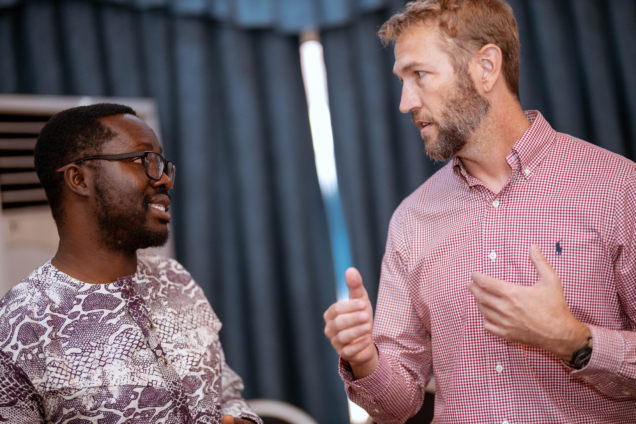Water is an essential component of human life.
Humans depend on water for sustenance, but most human activities affect water in one way or the other.
According to the World Health Organisation (WHO), at least 2 billion people use a drinking water source contaminated with faeces.
To curb this, the Water Safety Plan (WSP) was introduced by WHO as an effective way to ensure that water supply is consistently safe for human consumption.
To experiment with this, Aquaya, a non-governmental organisation, in collaboration with Kwame Nkrumah University of Science and Technology, will lead research to evaluate if WSPs result in better water quality.
In line with this, the Rural Evidence and Learning (REAL) for Water will investigate the effectiveness of WSPs for rural supplies in small towns in Ghana.
The study will monitor safe water implementations by Safe Water Network at 50 stations in 9 regions in Ghana to clarify a specific aspect of water system management and intervention delivery that lead to outcomes and impacts.
20 enumerators across Ghana will undergo a 10-day training to equip them with skills relevant for this study.
According to Dr. Eugene Appiah-Effah, a lecturer at the Department of Civil Engineering KNUST and the thematic lead for Water Quality Monitoring component of the project, the training aims to provide enumerators with the relevant skills to collect baseline data.
“This training is specific training for a water safety plan. Looking at the CVs of the enumerators, they have varying research experiences and are not specifically focused on WSP,” he said.
“We think that it is important that we take the enumerators through the research instruments and other research protocols that we have so that they can collect the relevant information that we require to respond to our research objectives,” he stressed.
The research Manager at Aquaya Ghana, James Edward Dotherow, added that the data would be collected from households, health care centres, and water stations.
“All this information will be collected at the beginning, and the analysis will be done afterwards. In about a year and a half, data will be collected again,” he said.
The trainees were enthusiastic about the project and believed it would help them collect appropriate research data.
“By the end of this training, I believe I will not just go to the field and collect any ordinary data. I hope I will be able to get more information and most of the protocols used in getting quality data,” said Ibrahim Mubarak, a trainee.
“Even though we have just started, I have learnt how to do interviews properly, the issues regarding confidentiality and community entry. I hope to gain more knowledge about research and gathering quality data,” Priscilla Aboagye Prempeh, a trainee, added.
The training was facilitated by Prof. Kwabena Biritwum Nyarko, Dr Eugene Appiah-Effah, Dr Charles Gyamfi and Godwin Armstrong Duku, all of KNUST and Valerie Bauza, James Edward Dotherow and Amanda Yahaya from Aquaya.
The REAL-Water project is funded by USAID to evaluate strategies for expanding access to safe, equitable and sustainable water in rural areas across the developing world.
Latest Stories
-
Fuel prices to fall from June 16 due to postponement of GH¢1.0 levy
18 minutes -
PassionAir assures passengers after Kumasi–Accra flight encounters turbulence
1 hour -
Fatherhood Beyond Finances: Two drivers inspire a rethink on presence, bonding and recognition
2 hours -
President Mahama urges protection of fuel price gains amid Middle East tensions
2 hours -
Republic of Rogues: Where Thieves Have Heads and the System Has None
2 hours -
Musah Mohammed donates jerseys and footballs to youth teams in Nkawkaw
3 hours -
Omane Boamah urges youth to persevere, recounts dramatic admission struggle at POJOSS
3 hours -
Minority unhappy over suspension of fuel levy, demands full repeal
4 hours -
Helicopter carrying Hindu pilgrims crashes in India, killing seven people
4 hours -
Council of State member urges Ghana to localise global solutions for youth employment
4 hours -
CAS overturns FIFA ruling and awards Right to Dream development fees from Ernest Nuamah’s transfer
4 hours -
Hitz Praise Zone: Nii Noi launches new gospel show on Hitz FM
5 hours -
BOAD reaffirms commitment to energy transition and sustainable agriculture in West Africa
6 hours -
10 kinds of women who have denied men the joy of fatherhood
7 hours -
A father’s hurdles caring for son with Sickle Cell disease – John Dzido shares a fraction
7 hours

